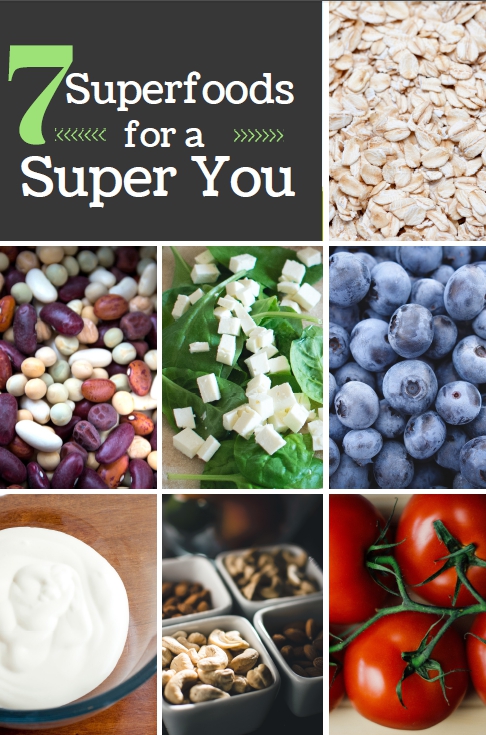
At Southern Louisiana Medical Associates, your health and wellness is important to us. That is why we have compiled a list of 7 “super foods” to add to your diet for you “super YOU:”
- Beans—Beans are a relatively cheap and easy way to incorporate a great superfood into your daily diet. Beans are a great source of soluble fiber, which soaks up cholesterol and allows your body to eliminate it before it can stick to your artery walls. Beans, such as red, black, pinto and kidney, are also high in disease-fighting antioxidants and are a good source of iron. Looking for ways to incorporate beans into your everyday eating? Try serving them as a side at dinner, tossing them into your salads or incorporating them into casseroles and pasta sauces, or try one of these great bean dishes.
- Blueberries—According to the Huffington post, blueberries contain more antioxidants than any other North American fruit! All those antioxidants can help to prevent cancer, diabetes and many age-related memory changes. Blueberries can also improve your cardiovascular health and are bursting with fiber and vitamins A and C. Try working blueberries into your daily diet by using them in salsas, parfaits, baked goods, smoothies, , sauces and salads—here’s a great recipe for a “Blueberry-Gorgonzola Salad.”
- Spinach— Did you know spinach contains lutein, a nutrient that promotes healthy eyesight? Just one cup provides almost 200% of the daily value of vitamin K! Spinach also has twice the amount of iron compared to other leafy greens. Spinach is super versatile and can be tossed in salads or cooked and served along the meat of your choice. You can even throw some into your blender when you are making a smoothie—you will be able to reap its superfood benefits without tasting it. Ready to make one for yourself? Try one of these “5 Healthy Green Smoothie Recipes.”
- Nuts—Nuts are an easy way to incorporate plenty of vitamins and minerals into your diet. Nuts are packed with omega-3 fatty acids and mono- and polyunsaturated-fat, which helps reduce your LDL (bad) cholesterol levels while maintaining healthy levels of HDL (good) cholesterol. Working nuts into your regular meals is almost effortless—they can be sprinkled onto salads, chopped and added into pancake or muffin batter or can even be used in marinades. With the holidays right around the corner, check out these “16 Roasted Nut Nibbles for the Holidays.”
- Tomatoes—Did you know that tomatoes contain all four major carotenoids: alpha- and beta-carotene, lutein and lycopene, which are antioxidants that can help feign off disease and cancer? Tomatoes are also bursting with potassium and vitamins E and C. Incorporate tomatoes into your daily diet by including them in pasta dishes, sauces and casseroles—try this “Classic Roasted Salsa” recipe to liven up your snacktime!
- Yogurt— Yogurt is commonly known to contain special strains of probiotics that can help regulate your digestion and strengthen your immune system, but did you know that it also contains riboflavin, an antioxidant which can help to lower your risk of heart disease, cancer and other chronic conditions? Think outside the carton with these tasty twists on “25 Things You Can Do with Yogurt.”
- Oats—Oats are packed with soluble fiber, which decreases your risk of heart disease. They also contain slow-releasing carbohydrates to ensure you stay full and energized throughout your day. One half-cup serving of oats delivers 10 grams of protein, essential fatty acids, amino acids, and vitamins such as thiamin, folic acid, biotin, pantothenic acid and vitamin E—what a powerhouse! There are plenty of ways to start eating oats regularly. Try incorporating them into your breakfast routine by making over-night oats for a filling, grab-and-go breakfast. Click here for “19 Overnight Oat Recipes To Restore Your Faith in Breakfast.”
